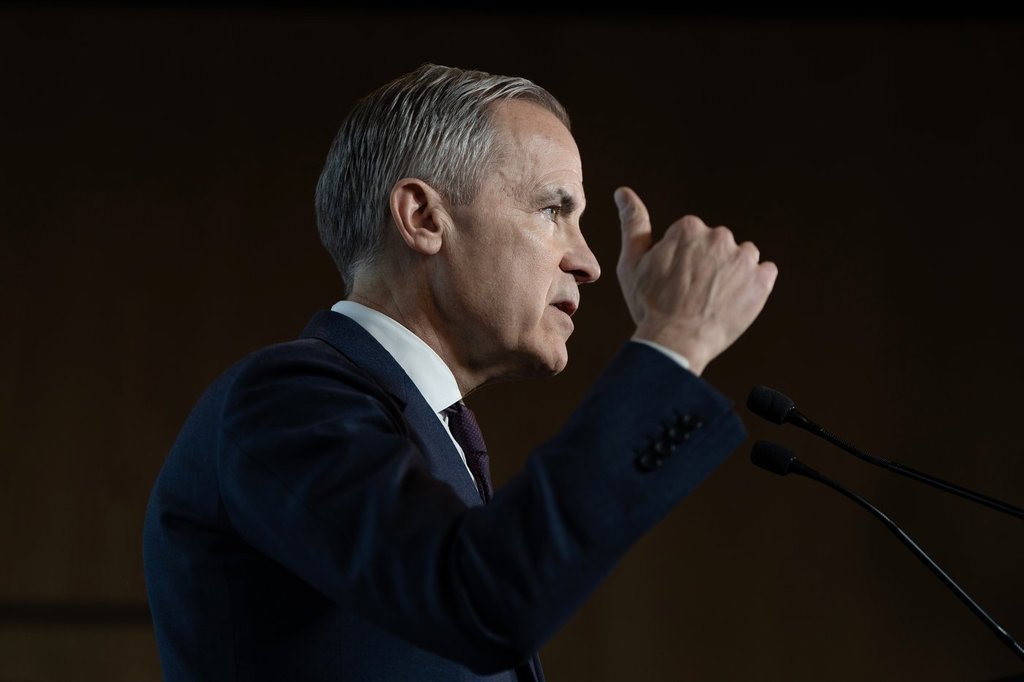Presumed Liberal leadership front-runner Mark Carney faces a major test Monday in Montreal, when he and his rivals square off in person for the first time in a French-language debate.
Carney is new to federal politics and his performance will be under the microscope. He’ll have to prove to Liberals that he can think on his feet in French — and since he has the most to lose, he’s expected to spend most of his time on defence.
“Especially after his inaugural speech in Edmonton, some people criticized his French, saying it was not that good. He does speak French, there is no question about it, but I think it will be a test for him,” said Daniel Béland, political science professor and director of the McGill Institute for the Study of Canada.
“People will be listening very carefully, especially people in Quebec or francophones, to not just what he says but how well he says it.”
Béland said Carney’s performance Monday should indicate how well he might perform in a French debate against Conservative Leader Pierre Poilievre and Bloc Québécois Leader Yves-François Blanchet, both strong debaters.
Rival candidate Chrystia Freeland, an experienced debater who appears to have fallen far behind in the race, will look to stage a comeback.
“This is potentially an opportunity for her to put some gas and some energy back into her campaign, and perhaps for Liberal party members to remember why it is that they have been so fond of her for so many years,” said Liberal strategist Carlene Variyan of Summa Strategies.
Carney currently leads in endorsements, polling and fundraising, and he’s the subject of frequent attacks from Poilievre and his caucus — but that doesn’t mean he’s got the leadership sewn up.
“Anything can happen because this is a campaign,” said Variyan. “I wouldn’t be prepared to rule anything out, particularly because of the unpredictable and erratic nature of decisions that come from south of the border and (U.S. President) Donald Trump.”
Former government House leader Karina Gould and former Montreal MP Frank Baylis will also take the stage to make their pitches to the Liberal grassroots.
Variyan said she is eyeing Gould because she could have the most to gain from a solid debate performance.
“She has been a force in this race that I don’t think a lot of political observers perhaps would have predicted at the outset,” she said.
“What would be very interesting now would be to see whether the race for second truly becomes competitive between Gould and Freeland. That to me is the big story of this leadership campaign — who Karina Gould is and what she’ll do next when this is over.”
Trending Now
Canadians call Wayne Gretzky a ‘traitor’ after tense 4 Nations hockey final
Police officer, gunman dead after hostages taken at Pennsylvania hospital
An English-language debate is set for Tuesday in Montreal.
Nelson Wiseman, professor emeritus of political science at the University of Toronto, said that while debates on their own don’t often matter that much in determining the outcome of leadership races, they can occasionally offer make-or-break moments and help turn around political fortunes.
While Kamala Harris’s sharp debate performance against Trump didn’t help her much at the U.S. polls last year, Jack Layton’s performance in the federal French debate in 2011 helped lift the NDP to official Opposition status, Wiseman said.
The other wild card, he said, is the state of the candidates’ get-out-the-vote machinery, which is difficult to assess before the voting is over.
“We could still have surprises, and that’s because of the method that the Liberals are using to select the leader,” Wiseman said.
Each riding is worth 100 points in the race — which means ridings where the Liberals typically do badly are great places to shop for votes. Freeland has spent time in rural Quebec wooing dairy farmers and in rural Alberta and elsewhere rallying Ukrainians.
“She’s playing it very smart to do that,” said Wiseman, pointing to the 2004 Conservative leadership race won by Stephen Harper. “Belinda Stronach came in second, ahead of Tony Clement. How did she come in second? She swept all these Quebec ridings.”
On Wednesday, immediately following the debates, advance voting opens for party members. The winner will be named March 9.
© 2025 The Canadian Press


